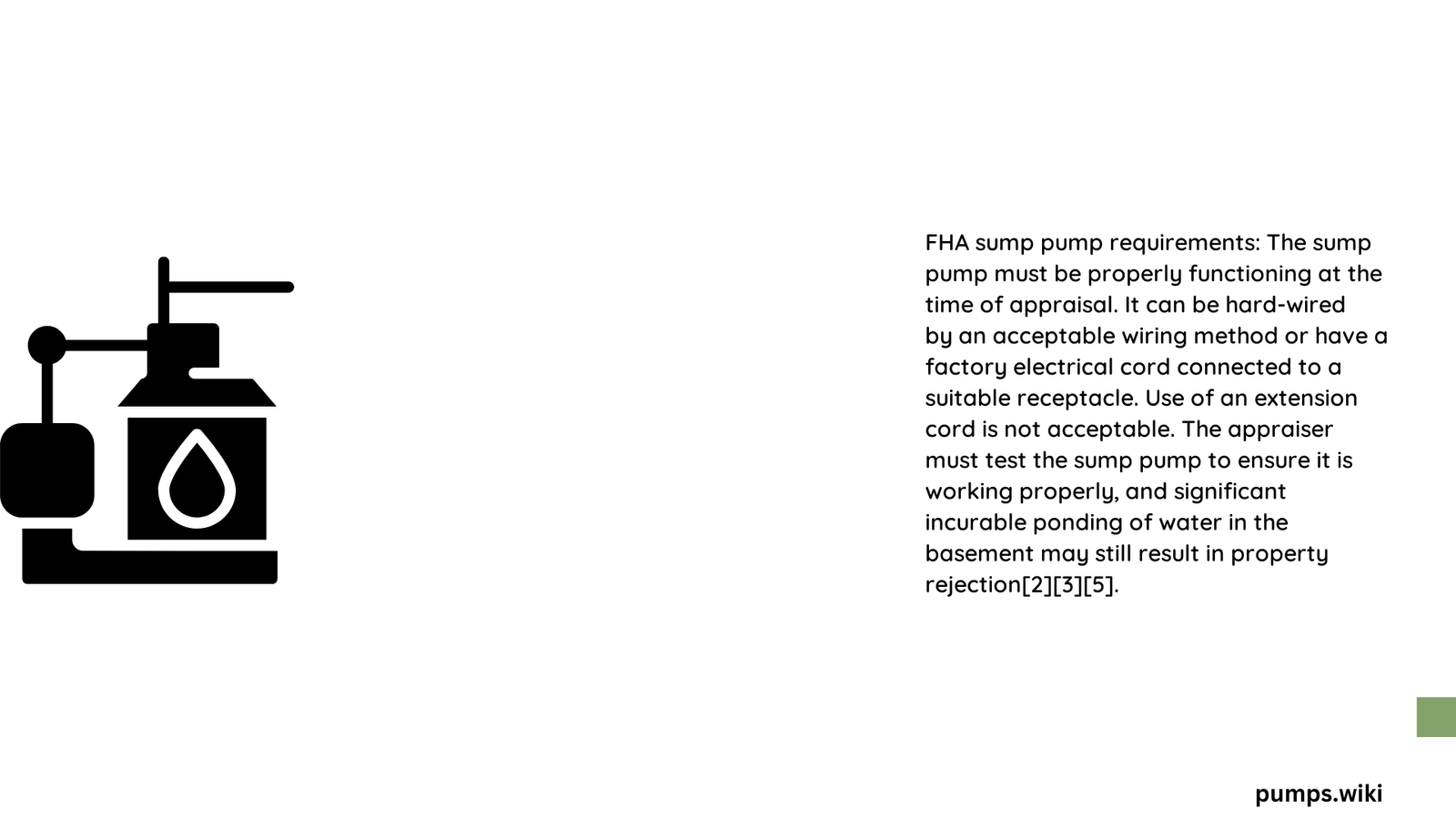Federal Housing Administration (FHA) sump pump requirements are critical for homeowners seeking mortgage approval. These guidelines ensure proper water management, electrical safety, and structural integrity during property appraisals. Homeowners must meet specific standards involving functional sump pump installation, electrical connections, and overall basement moisture control to qualify for FHA financing.
What Are the Primary FHA Sump Pump Installation Guidelines?
Functional Requirements
FHA appraisers evaluate sump pumps based on several key criteria:
- Operational Status: Must be fully functional during property appraisal
- Electrical Connection: Requires proper hard-wiring or factory electrical cord
- Safety Standards: No visible hazards or potential water damage risks
Electrical Specifications
| Electrical Requirement | Details |
|---|---|
| Minimum Service | 60-amp electrical service |
| Electric Heat Recommendation | 200-amp service |
| Connection Method | Hard-wired or factory cord |
How Do Electrical Codes Impact Sump Pump Installations?

Wiring Standards
Proper electrical connections are paramount for FHA sump pump approval:
- Hard-wired installations must follow local electrical codes
- Factory electrical cords must connect to appropriate receptacles
- Extension cords are strictly prohibited
- Electrical service must support standard home appliances
What Safety Measures Must Be Considered?
Moisture and Structural Integrity
Appraisers conduct thorough assessments to ensure:
- No visible water accumulation
- Absence of structural damage
- Proper drainage functionality
- Minimal basement/crawlspace moisture
Appraiser Evaluation Checklist
- Test sump pump operational status
- Verify electrical connection compliance
- Inspect surrounding area for potential issues
- Document any deficiencies requiring correction
What Happens If Sump Pump Requirements Are Not Met?
Potential Outcomes
- Property may be deemed ineligible for FHA mortgage
- Required repairs must be completed before loan approval
- Potential need for professional remediation
Best Practices for Homeowners
Preparation Steps
- Conduct pre-appraisal sump pump inspection
- Ensure proper electrical connections
- Address any moisture-related issues
- Maintain documentation of recent repairs/maintenance
Professional Recommendations
- Schedule professional sump pump evaluation
- Update electrical connections if outdated
- Implement preventative moisture control measures
Technical Considerations
Advanced Sump Pump Features
- Battery backup systems
- Automatic water level sensors
- Corrosion-resistant materials
- Energy-efficient models
Recommended Maintenance
- Annual professional inspection
- Regular cleaning of pump and pit
- Check valve functionality
- Backup power source verification
Cost Implications
Potential Investment
- Basic sump pump installation: $500 – $1,500
- Advanced systems: $1,500 – $4,000
- Electrical upgrades: $500 – $2,000
Compliance Strategies
Documentation
- Maintain repair records
- Keep installation certificates
- Photograph repair and maintenance efforts
Expert Consultation
- Work with certified home inspectors
- Consult FHA-approved appraisers
- Seek professional electrical guidance
Conclusion
Understanding FHA sump pump requirements is crucial for successful home financing. Homeowners must prioritize functional, safe, and compliant water management systems to meet stringent mortgage standards.
